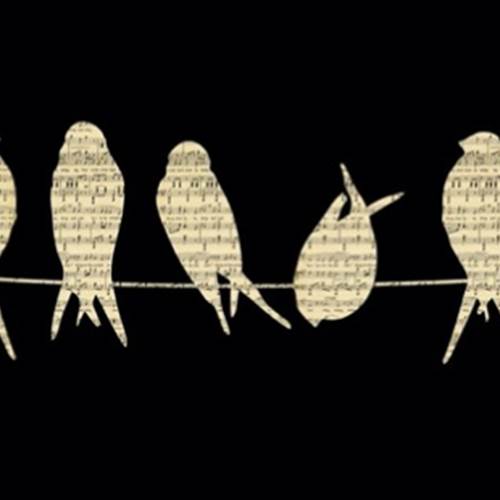
A Practical Guide to Auditioning: Theatre Actor's Edition Pt. I
Posted Friday, December 29th 2023 by Bryan Chan
Where do you find out about auditions? What auditions should you go to? What should you expect when going to an audition? I will guide you through everything you need to know about auditioning as a theatre actor in 2023 in Part I of this series.
So you have just moved to the city of your choice and decided to pursue a career in theatre. You have trained hard on the skills required to be a successful theatre/musical theatre actor - acting, singing, dancing, and much more. Now, you can finally focus on auditioning for as many opportunities as you see fit for you. But, one thing holds you back - you are new to this industry and don’t know how to find auditions to go to. Where do you find out about auditions? What auditions should you go to? What should you expect when going to an audition? This practical guide will help you through everything you need to know about auditioning as a musical theatre actor in 2023, utilizing as much technology and as many resources as possible to help boost your chances for success.
First, let’s talk about expectations…
There is no way around it: auditioning takes work. From finding a song to performing well at an audition to preparing for numerous callbacks to finally negotiating contracts, auditioning can seem so futile when we consider the small chance of success most actors face when finding work. Many musical theatre actors spend at least 2-3 days a week on open call and appointment auditions but will only book a handful of opportunities a year. This means that for any given audition, the statistical probability of it leading to a rejection is much higher than a booking.
That being said, if you are methodical about auditioning, there are ways of maximizing your odds of booking opportunities while ideally working less hard for auditions. Below are some tools to help you do just that!
How do you find out about auditions?
Gone are the days of going to physical bulletin boards and calling friends to know what auditions are happening soon. We have access to so many auditions online nowadays that we don’t even need to leave our homes during the entire audition process. Since COVID, online audition submissions have been heavily popularized due to their cost-effectiveness when it comes to casting. They have also opened avenues for actors from all around the globe to easily submit audition materials for opportunities at a low cost.
Actor’s Access and Backstage.com, for example, are widely used portals by actors of all types to submit audition material online to casting directors directly. Since actors can reuse the same self-tapes for different auditions, as long as you have enough self-tapes to send for different opportunities, it effectively requires zero work to apply for an online audition through these portals.
Other resources such as Playbill.com and Broadway World post details of in-person auditions, including the time/date/location of the audition as well as what materials casting directors are looking for. These sites provide one-stop access to many in-person auditions happening around your city if you use the “filter” option and select your city. However, be cognizant of the type of in-person audition referred to in the postings, which brings me to my next point:
Different Types of In-Person Auditions
In theatre, there are generally 3 types of auditions: EPA, ECC, and Open Call. Backstage.com has written a wonderful article talking about what to expect from these auditions. Simply put, depending on whether you are an Equity actor, an EMC (Equity Member Candidate), or a Non-Equity actor, the chances of you getting seen in an audition are impacted. To understand the difference between these 3 statuses, please refer to this article written by Actor Aesthetic!
Audition Preparation, Logistics, and Much More!
In the next part, we will discuss in more detail how to prepare for an initial audition, some logistics of how a formal audition may happen, and any other information necessary for your success as an auditioning actor. Remember, auditioning is a marathon, not a race. Put in the work, be patient, and the opportunities will come your way!

Bryan Chan
Voice Teacher Associate
Bryan Chan is a voice teacher for all and a trilingual (English/Cantonese/Mandarin) cross-genre performer who strives to provide support for singers wanting to sing any and all genres of their liking. Experienced in performing and teaching musical theatre, classical, and pop/r&b/soul singing, Bryan constantly finds ways for students to connect to their authentic expression beyond the confines of genre and style. Bryan’s students have found success in college auditions, professional gigs, or just their weekend karaoke sessions with friends.

NYVC Welcomes Kacey Velazquez!
Joining the ranks of New York Vocal Coaching will be Kacey Velazquez, our new Associate Vocal Instructor. Get to know about Kacey and her love of music below!

All the Rage: Our Favorite Vocalists In Metal
The voice can do some amazing things. We admire singers with powerful belts, perfect mixes, and agile riffs. But singers in the metal genre tend to get a bad rap...

Challenge: What can you do in 8 bars?
What can you possibly do in eight bars? The answer is A LOT.